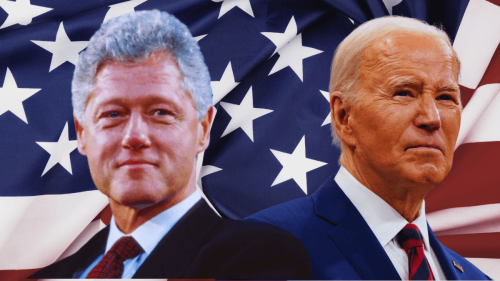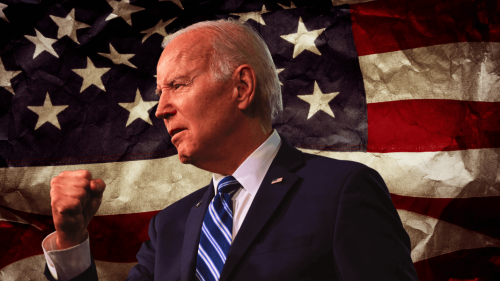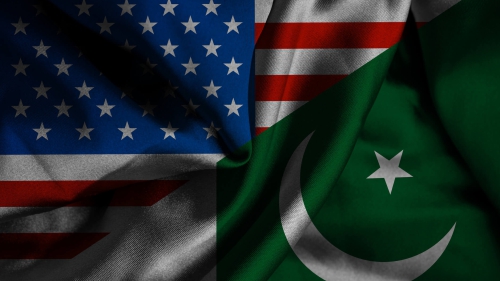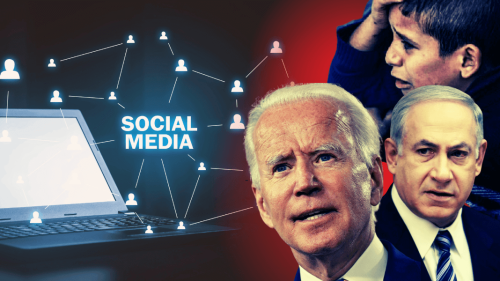Muslims must capitalize on growing opposition to sanctions against Iraq
It's about time. More than 70 members of the United States Congress have signed a letter addressed to President Bill Clinton asking him to lift the sanctions on Iraq. Three representatives - Dennis Kucinich (D-OH), John Conyers (D-MI) and Cynthia McKinney (D-GA) - also held a Congressional briefing on May 3, 2000.
Three former high-ranking U.N. officials, Hans Von Sponeck, Denis Halliday and Scott Ritter joined the members of Congress at the briefing. Sponeck and Halliday are former U.N. Humanitarian Co- ordinators, while Ritter was the former UNSCOM weapons
The group challenged the Administration's claim that "food, medicine and human goods have all been exempt from sanctions on Iraq." Conyers stated that this is false and said, "if that was true we would not be here today."
Canadian Foreign Affairs Minister Lloyd Axworthy also made headlines in April after speaking out against the continuing sanctions. His is one of many prominent voices outside the U.S. calling for an end to the devastating sanctions.
Axworthy's attack on the embargo followed a House of Commons foreign affairs committee report, tabled in April, 2000, calling on the government to address the humanitarian crisis in Iraq. Axworthy also announced a $1-million humanitarian aid package to the beleaguered nation to be channelled through UNICEF and the International Red Cross.
Both announcements came after his presentation to the Security Council on the ineffectiveness of the U.N.'s sanctions policies. The report titled "The Sanctions Decade: Assessing UN Strategies in the 1990's" was prepared with Canadian funding by the New York-based International Peace Academy. Axworthy also made it clear that the American focus of punishing the regime is ignoring the humanitarian catastrophe on the grounds.
The Liberal Minister told the Council that the "unintended humanitarian impact of these measures has been borne by the Iraqi civilians, rather than the Baghdad regime." Indeed, in the continuing tussle between Iraqi president Saddam Hussein and the equally obstinate western powers, the desperate plight of the civilians caught in the middle has been virtually ignored.
Unfortunately, even the media has done little to publicize the humanitarian crisis. And while politicians and intellectuals -- from both the left and right of the political spectrum -- openly voiced concern about innocent Serb victims of NATO bombings, very few have come to the aid of Iraqis who have suffered for the past decade.
The average Iraqi, who has no say in the policies pursued by the government in Baghdad, faces extensive food and medical shortages, hyperinflation and rampant urban unemployment. The chaos has contributed to the growth of the black market where prices are so exorbitant that more and more people have turned to government food rations which provide only a fraction of the necessary caloric and nutritional requirements, leading to malnutrition and other related diseases.
In most parts of the country, water and sanitation systems are not functioning at full capacity, resulting in outbreaks of cholera, typhoid, gastro-enteritis, malaria, hepatitis, meningitis and other infectious diseases. The situation is so critical that UNICEF officials announced years ago that there was a resurgence of vaccine- preventable diseases.
It should not have taken a rocket scientist to conclude that the sanctions would have such a negative profound effect, particularly given that Iraq imported almost 70 per cent of its food prior to the Gulf War. In fact, the U.N. Food and Agricultural Organization warned as early as July, 1993 that pre-famine conditions existed in the country. Moreover, according to UNICEF, more than 1.5 million have reportedly died due to the sanctions. Deplorably, the sanctions have an inordinate impact on the most vulnerable - the children. More than 4,500 children under the age of five die each month, as opposed to 700 before the war. The mortality rate among those older than the age of five is now 6,500 per month, compared with 1,800 per month before the war. Even if we don't accept these figures at face value, are any innocent lives disposable?
The Iraqi government directs the accusatory finger at the United Nations and the West, the U.S. and Britain in particular. Western nations, in turn, blame Hussein's regime. Baghdad's lack of concern for its citizens is clearly evident from its rejection of Axworthy's offer of humanitarian aid. The U.S./U.K. point to this kind of behaviour on the part of Saddam to show that he is more to blame. But it must be asked when you have a madman holding hostages do you withhold food from the hostages to entice the hostages to overtake the madman?
The proponents of sanctions also point to the many U.N. resolutions they have passed, which they claim are for the benefit of the Iraqi people. Resolution 688 calls on Baghdad to stop repressing its own citizens. And this from the same countries most aggressively pursuing the sanctions and carrying out bombing raids over Iraq.
They also point to Resolutions, 706 and 712, which propose the supply of food, medicine and other humanitarian goods under U.N. observation. The funding is to come from U.N. authorized oil sales, which Iraq has been unable to take advantage of fully due to lack of spare parts for its refineries. Moreover, a significant proportion of the funds from the sales must also go to fund the U.N. reparations committee and U.N. humanitarian and monitoring operations. And naturally Iraq objects to this arrangement as a violation of its sovereignty.
The U.S./U.K. obsession with removing Saddam, who has survived almost two decades of virtually continuous warfare, internal dissension, assassination attempts and sanctions, has blinded many to the suffering of innocent children, women and men. And every few weeks for the past decade, politicians have quarrelled over geopolitical issues in New York while millions in Iraq continue their miserable existence.
Interestingly, the speakers at the May 3rd Congressional briefing placed much of the blame on the shoulders of the U.S. for the death and destruction. "Sanctions have brought nothing but suffering and they cannot continue. The United States must realize that it has failed and must grant the Iraqi people the right to live," said von Sponeck. On the issue of weapons of mass destruction, Ritter said, "Iraq has no weapons of mass destruction."
Those at the forefront of the campaign to date have been non-Muslim groups such as former U.S. Attorney General Ramsey Clark's International Action Centre (http://www.iacenter.ort), Voices in the Wilderness (http://www.nonviolence.org/vitw), the Iraq Action Coalition (http://www.iraqaction.org) and various Church groups. They must be commended for their excellent work.
Where are the Muslims? There are some organizations trying to educate the community about this issue. But, having helped organise protests in Toronto on the issue, I can say that the community's response is worse than pathetic. Out of a Muslim population of between 300,000 and 400,000, about 100 showed up on one occasion and about 350 on the second occasion. Most people who came to the second rally where forced to show up because the Friday prayers from a local University was diverted to the rally site.
It is high time that Muslims wake up and aggressively take up the cause of Iraq's women and children. How many of us have picked up the phone and called our member of congress or parliament? Put pen to paper or hit the keyboard to write a letter to our representative or the media? How about mobilising and educating others about the plight of the innocent men, women and children being crushed between the west and Saddam?
Faisal Kutty is a Toronto-based lawyer and writer. He is also a columnist for th,e Washington Report on Middle East Affairs (htt://www.washington-report.org).
Topics: Bill Clinton, Government And Politics, Iraq, United States Congress, United States Of America
Views: 1778
Related Suggestions

















